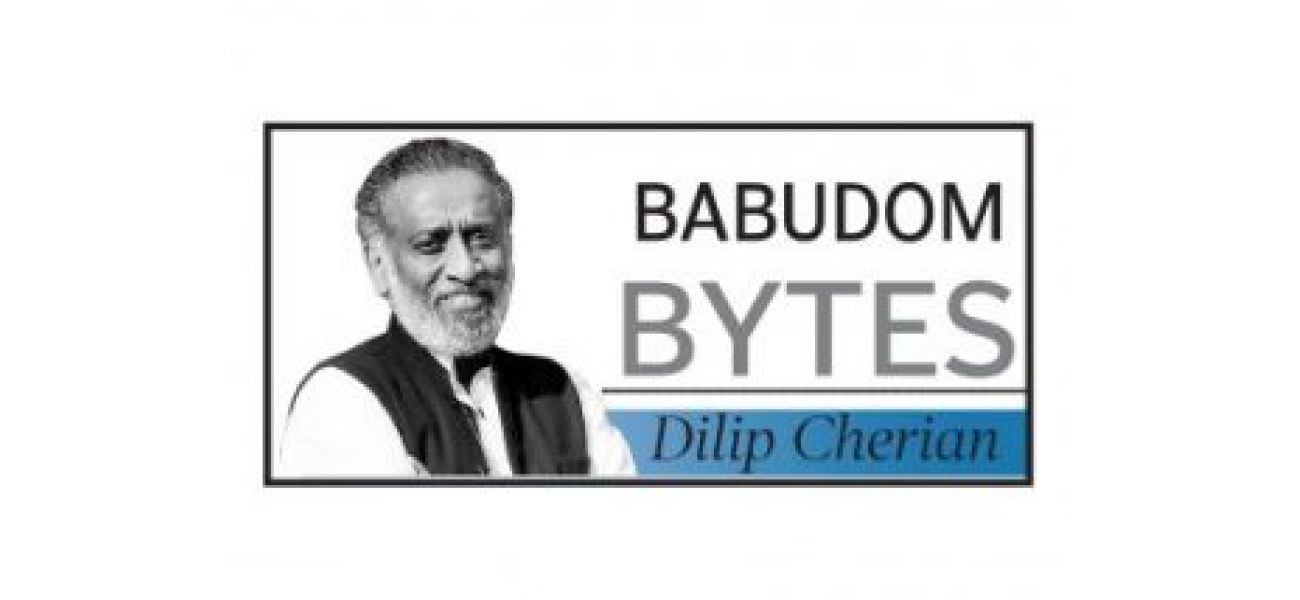Lots of talk but no substance.
The search for the next chief of Uttar Pradesh's police force is intensifying, but the state government has yet to send a shortlist to the UPSC or start the selection process.
May 24th 2025.

With only a few days remaining until Acting DGP Prashant Kumar retires on May 31, the competition for leading Uttar Pradesh's police force is intensifying, but nothing concrete has been decided yet. The state government has not sent a shortlist of candidates to the UPSC (Union Public Service Commission) and has not initiated the process under the newly implemented DGP appointment rules, leaving the top position in a state of suspense and speculation.
These new rules, which were introduced with great fanfare to streamline the bureaucratic process, involve a selection committee led by a retired High Court judge from the state. However, many believe that this is just a way to reduce the Centre's involvement and maintain tighter political control over the selection of the new DGP. As of now, there are several names being discussed in the power corridors and grapevine conversations. One of the most prominent candidates is Tilottama Verma, a 1990-batch officer and DG. If she is chosen, she will be the first woman DGP of India's most populous state, which is both symbolic and long overdue. Verma's impressive credentials from her time at the CBI, along with her unquestionable seniority, have only added to the buzz surrounding her. It is also worth noting that her husband, senior IPS officer Ashish Gupta, recently took voluntary retirement, possibly paving the way for her elevation.
Other notable names in the running include Daljit Singh Chaudhary, currently serving with the BSF and with extensive experience in central forces; Alok Sharma, who is currently the SPG chief and responsible for protecting the highest of the high; and Rajiv Krishna, who is known for his calm and competent leadership as the head of the state's police recruitment board. However, none of this will matter if the government does not take action soon.
While the rules may have changed, there are still concerns about whether the selection will be based on merit, integrity, and experience, or if political convenience will once again take precedence. This is a historic opportunity for an appointment, but the longer the delay, the more it begins to resemble a backroom chess match where strategy holds more weight than service.
From Trees to Trouble
In Telangana, weekends are not just for lazy brunches but also for bulldozing forests in the hopes that no one will notice. However, the Supreme Court was watching, and they were not amused. During a heated hearing, the Court criticized the Telangana government for cutting down hundreds of trees in the Kancha Gachibowli forest, located next to Hyderabad Central University. The timing of this operation was also called into question, as it took place over a long weekend when the SC's forest bench was conveniently unavailable. The Court's message was clear and scathing: either restore the forest within two months, or the state's Chief Secretary could face jail time.
Chief Justice of India B.R. Gavai did not hold back in his criticism, warning the state government to be prepared for contempt charges. He also referred to the operation as "preplanned" and "deliberate." The state's defence, claiming that the land was not technically a forest and only "exempted" trees were cut down, was dismissed by the Court. The lack of environmental clearance, paperwork, and now possibly freedom, has resulted in a dire situation for those involved.
A report from the Court-appointed Central Empowered Committee has confirmed the fears of many: over 100 acres of land were destroyed without proper approvals. This land is home to wildlife corridors and natural water bodies, yet someone saw it fit for an IT park.
The Supreme Court has drawn a line in the sand, making it clear that this issue is about more than just a patch of green. It is about holding the state accountable and putting an end to the belief that no one is watching. The Court's message is clear: weekends will not save you from facing the consequences of your actions.
Online Trolling: A Chilling New Normal
In an age where outrage can spread like wildfire on the internet, social media has become an arena where public servants and their families are easy targets. Recently, Foreign Secretary Vikram Misri found himself at the center of such a storm. However, it was not for a diplomatic misstep, but simply for doing his job. The real target in this situation was his daughter, a private citizen, who was doxxed and labeled "anti-national" for studying abroad. Her photos were circulated as if they were evidence in a trial she never signed up for.
What makes this situation even more alarming is that it was not anonymous trolling from the depths of the internet. It was a coordinated and vicious attack that was met with deafening silence from the government, including Misri's own ministry.
This is not an isolated incident. Just a few weeks ago, Lieutenant Vinay Narwal, a newlywed naval officer, was killed in a terror attack in Pahalgam. His wife, Himanshi, showed extraordinary grace by appealing against the politicization of her husband's death. However, for this, she too was targeted online and her grief was overshadowed by political hatred.
Thankfully, civil service bodies and prominent citizens have spoken out in support of the foreign secretary and condemned the vicious online attack. Political leaders such as Akhilesh Yadav have also questioned the government's silence, asking if it is a form of tacit approval. Even the Supreme Court has described social media trolling as "atrocious."
This is not free speech; it is the public lynching of private grief. If we cannot draw a line here, then the question is not whether we have lost our moral compass, but if we even want one anymore.
These new rules, which were introduced with great fanfare to streamline the bureaucratic process, involve a selection committee led by a retired High Court judge from the state. However, many believe that this is just a way to reduce the Centre's involvement and maintain tighter political control over the selection of the new DGP. As of now, there are several names being discussed in the power corridors and grapevine conversations. One of the most prominent candidates is Tilottama Verma, a 1990-batch officer and DG. If she is chosen, she will be the first woman DGP of India's most populous state, which is both symbolic and long overdue. Verma's impressive credentials from her time at the CBI, along with her unquestionable seniority, have only added to the buzz surrounding her. It is also worth noting that her husband, senior IPS officer Ashish Gupta, recently took voluntary retirement, possibly paving the way for her elevation.
Other notable names in the running include Daljit Singh Chaudhary, currently serving with the BSF and with extensive experience in central forces; Alok Sharma, who is currently the SPG chief and responsible for protecting the highest of the high; and Rajiv Krishna, who is known for his calm and competent leadership as the head of the state's police recruitment board. However, none of this will matter if the government does not take action soon.
While the rules may have changed, there are still concerns about whether the selection will be based on merit, integrity, and experience, or if political convenience will once again take precedence. This is a historic opportunity for an appointment, but the longer the delay, the more it begins to resemble a backroom chess match where strategy holds more weight than service.
From Trees to Trouble
In Telangana, weekends are not just for lazy brunches but also for bulldozing forests in the hopes that no one will notice. However, the Supreme Court was watching, and they were not amused. During a heated hearing, the Court criticized the Telangana government for cutting down hundreds of trees in the Kancha Gachibowli forest, located next to Hyderabad Central University. The timing of this operation was also called into question, as it took place over a long weekend when the SC's forest bench was conveniently unavailable. The Court's message was clear and scathing: either restore the forest within two months, or the state's Chief Secretary could face jail time.
Chief Justice of India B.R. Gavai did not hold back in his criticism, warning the state government to be prepared for contempt charges. He also referred to the operation as "preplanned" and "deliberate." The state's defence, claiming that the land was not technically a forest and only "exempted" trees were cut down, was dismissed by the Court. The lack of environmental clearance, paperwork, and now possibly freedom, has resulted in a dire situation for those involved.
A report from the Court-appointed Central Empowered Committee has confirmed the fears of many: over 100 acres of land were destroyed without proper approvals. This land is home to wildlife corridors and natural water bodies, yet someone saw it fit for an IT park.
The Supreme Court has drawn a line in the sand, making it clear that this issue is about more than just a patch of green. It is about holding the state accountable and putting an end to the belief that no one is watching. The Court's message is clear: weekends will not save you from facing the consequences of your actions.
Online Trolling: A Chilling New Normal
In an age where outrage can spread like wildfire on the internet, social media has become an arena where public servants and their families are easy targets. Recently, Foreign Secretary Vikram Misri found himself at the center of such a storm. However, it was not for a diplomatic misstep, but simply for doing his job. The real target in this situation was his daughter, a private citizen, who was doxxed and labeled "anti-national" for studying abroad. Her photos were circulated as if they were evidence in a trial she never signed up for.
What makes this situation even more alarming is that it was not anonymous trolling from the depths of the internet. It was a coordinated and vicious attack that was met with deafening silence from the government, including Misri's own ministry.
This is not an isolated incident. Just a few weeks ago, Lieutenant Vinay Narwal, a newlywed naval officer, was killed in a terror attack in Pahalgam. His wife, Himanshi, showed extraordinary grace by appealing against the politicization of her husband's death. However, for this, she too was targeted online and her grief was overshadowed by political hatred.
Thankfully, civil service bodies and prominent citizens have spoken out in support of the foreign secretary and condemned the vicious online attack. Political leaders such as Akhilesh Yadav have also questioned the government's silence, asking if it is a form of tacit approval. Even the Supreme Court has described social media trolling as "atrocious."
This is not free speech; it is the public lynching of private grief. If we cannot draw a line here, then the question is not whether we have lost our moral compass, but if we even want one anymore.
[This article has been trending online recently and has been generated with AI. Your feed is customized.]
[Generative AI is experimental.]
0
0
Submit Comment





